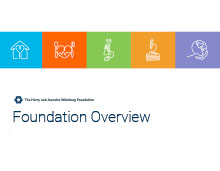Over the past three years, the Weinberg Foundation has been compelled to publicly respond to various acts of antisemitism, racial violence, and injustice through a series of statements shared externally and posted on the Foundation’s website. Sadly, tragically, the nation continues to experience traumas rooted in these cancers of the heart and soul. Most recently, on Saturday, January 15—as we prepared to honor Dr. Martin Luther King’s legacy of peaceful protest, activism, and change in the face of racism and oppression—a gunman took four people hostage at Beth Israel synagogue in Colleyville, Texas during Shabbat/Sabbath prayer services.
It is most fortunate that only four people were inside the synagogue because the service was virtual and being livestreamed due to COVID protocols. One hostage was released, the other three managed to escape, and the gunman was killed by an FBI hostage rescue team. For many, especially within the Jewish community, the incident reopened deep wounds inflicted through similar incidents and attacks, including the 2018 shootings at the Tree of Life synagogue in Pittsburgh. That mass shooting left 11 people dead, as well as six injured, and was the deadliest attack on the Jewish community in the United States.
Such violence is only the worst manifestation of antisemitism that surfaces, sadly with increasing frequency, in a variety of ways and across diverse communities. As of this writing, Anti-Defamation League (ADL) has already documented nearly 80 antisemitic incidents throughout the US in 2022, including the January 15 hostage situation in Colleyville. In its 2020 Audit of Antisemitic Incidents, the most recent year for which data is available, ADL tabulated more than 2,000 reported antisemitic incidents throughout the US. This is a four percent decrease from the number recorded in 2019—but is still the third highest year on record since ADL began tracking antisemitic incidents in 1979.
However, actions that helped to safely deliver the Colleyville hostages provide a measure of hope and affirmation. As you may know, after 11 nightmarish hours of captivity at gunpoint, and facing diminishing hope of a peaceful resolution, Rabbi Charlie Cytron-Walker made the courageous decision to facilitate the remaining three hostages’ escape. He chose the best moment and hurled a chair at the gunman; a momentary distraction that proved effective and potentially saved lives. While the tactic might seem desperate or random, it was not.
What happened in that synagogue—allowing hostages to not only survive a prolonged, terrifying threat, but to also take action to effect an escape—was proof text for many recent investments nationwide, including those of the Weinberg Foundation, to combat antisemitism. For more than a century, ADL has been synonymous with these efforts and now, amid a rising tide of violent antisemitism and extremism, has intensified its focus on helping synagogues and other organizations to better prepare for attacks like those in Pittsburgh and Colleyville. ADL is a long-standing partner of the Weinberg Foundation and has received $2.3 million in Foundation grants since 2015.
The Foundation also provided a two-year, $200,000 grant to support security training and coordination to Jewish Federations of North America and its subsidiary, Secure Community Network (SCN). SCN was referenced in various news accounts, including a New York Times article on the Colleyville incident, “The Hostages Escaped. But Synagogues Ask, How Can They Be More Secure?” Jeffrey Cohen, one of the hostages, also mentioned that an August training from SCN was pivotal to helping the Colleyville hostages more safely and effectively respond to a situation like the one that unfolded in their synagogue. SCN and ADL were both noted in a written statement to CNN. In that statement, Rabbi Cytron-Walker shared, “Over the years, my congregation and I have participated in multiple security courses from the Colleyville Police Department, the FBI, the Anti-Defamation League, and Secure Community Network.” He added, “We are alive today because of that education.”
Colleyville makes apparent that the increasingly tight coordination of efforts among organizations—ADL, SCN, law enforcement agencies, and others—rather than the individual actions of any one of them, led to a successful outcome.
As the Stockdale Paradox recognizes, all of us—not just the Jewish community—must remain clear-eyed about the threats of antisemitism, specifically, as a symptom of racial and cultural hatred. We must remain resolute in speaking out and working, each to the best of our abilities, to overcome darkness with determined action—underpinned by love and kindness. That is just how Colleyville responded. More than 1,000 Colleyville residents (out of a total population of 24,000) joined a multi-faith rally to show solidarity with the Jewish community, and many thousands more joined online.
An African proverb states, “When you pray, move your feet.” It is an urging that appears across generations and culture: prayer sometimes requires response and action. When we take a stand against hatred—whether as boldly as the community march in Colleyville or as quietly as a conversation in our own community or home—we send a powerful message that hatred has no place and that its expressions and its voices are the domain of a very few.
Dr. Martin Luther King, Jr. reminded us, “the arc of the moral universe is long, but it bends toward justice.” Change may take time, but it does happen. It fuels our hope that love and unity will prevail.
